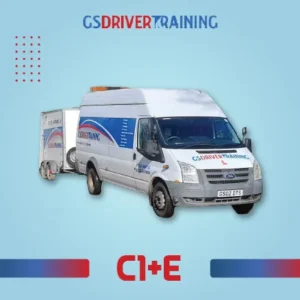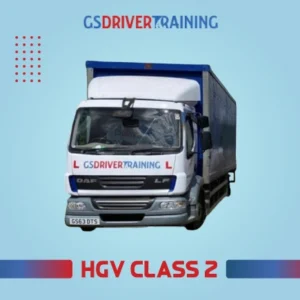Are you considering a career in the world of HGV driving? It’s a rewarding profession with excellent job prospects, but you may need more clarification about HGV training. Let’s unravel these myths and provide the correct information to help you make informed decisions.
HGV Training is Expensive
One of the most common misconceptions is that HGV training cost is prohibitively expensive. While it’s true that training does come with a cost, it’s essential to view it as an investment in your future. There are various training providers, and prices can vary. Research and compare options to find a program that fits your budget. Many training schools also offer financing or payment plans, making it more accessible than you might think. When it comes to getting your HGV licence, there are plenty of course stories out there, so make sure you pick a trusted HGV school.
HGV Training Takes a Long Time
Another misconception is that HGV training requires a significant amount of time. While it’s true that obtaining an HGV licence does involve training and testing, it takes less time than some people believe. The duration of training can vary depending on your previous experience and the type of licence you’re pursuing. Some courses can be completed in a matter of weeks. It’s all about finding the right training program to suit your schedule. Not to forget, a well-seasoned instructor can make all the difference.
You Need Prior Experience
Many assume you need experience driving large vehicles to pursue HGV training. While having some experience can be beneficial, it’s only sometimes a prerequisite. Training programs are designed for beginners, providing the necessary skills and knowledge to become a qualified HGV driver. So, make sure to explore this career path.
HGV Driving Is a Dead-End Job
Some believe HGV driving is a dead-end job with limited career growth. In reality, the industry offers various opportunities for advancement. Experienced HGV drivers can move into specialized roles, such as tanker or hazardous materials transport. Moreover, some HGV drivers transition into supervisory or managerial positions within transportation companies. It’s a dynamic field with room for growth.
HGV Driving is Monotonous
Another misconception is that HGV driving is a monotonous job where you’re constantly stuck behind the wheel with no excitement. While long hours on the road are a part of the job, HGV drivers often see different places and experience a sense of freedom. The career can be fulfilling, especially if you enjoy solitude and independence.
How to Correct These Misconceptions:
- Start by researching different HGV training courses providers in your area. Compare their costs, durations, and reviews to find the best fit for your needs and budget.
- Connect with experienced HGV drivers or visit local transportation companies. They can provide real insights into the industry and dispel any myths.
- Keep up with industry news and developments through reputable sources and forums related to HGV driving.
- Determine your long-term career goals within the HGV industry. Knowing where you want to go can help you plan your training and career path effectively.
In Conclusion
HGV training is a viable career option with misconceptions that can be easily corrected. By conducting thorough research and seeking professional advice, you can make an informed decision and embark on a successful career in HGV driving. Don’t let these myths deter you from pursuing a fulfilling and potentially lucrative profession.
A guild to becoming an HGV Driver
Step 1: Meet the Eligibility Requirements
Before you start your journey to becoming an HGV driver, it’s important to ensure you meet the eligibility requirements. In the UK, the basic requirements include:
- Being at least 18 years old.
- Holding a valid car driving licence (Category B).
- Passing a medical examination.
- Having a clean criminal record.
Step 2: Choose the Right HGV Licence
There are different categories of HGV licences, each allowing you to drive other types of vehicles. HGV courses to look out for will include:
- Category C1: You can drive vehicles weighing between 3.5 and 7.5 tonnes.
- Category C: Allows you to drive vehicles over 7.5 tonnes.
- Category C+E: Allows you to drive vehicles over 7.5 tonnes with a trailer
- Choose the licence category that aligns with your career goals and the type of vehicles you want to drive.
Fast Track HGV and LGV Training Hampshire, PCV Bus and Coach Driver Training Surrey, Online CPC Training Courses, by GS Driver Training
Step 3: Enrol in HGV Training
HGV training is a crucial step in becoming a qualified driver. Look for reputable training providers in Surrey or nearby areas. Ensure they are accredited and offer comprehensive training covering theory and practical aspects. Look at the online reviews to make sure you are going to get a good instructor. Remember, you will have to pass an off-road and on-road test.
Resources for HGV Training:
Training Schools: Consider enrolling in a local HGV training school like GS Driver Training.
Government Resources: Check the official UK government website for information on approved training providers.
Step 4: Pass the Theory and Practical Tests
You will need to pass both theory and practical tests to obtain your HGV licence. The theory test includes multiple-choice questions and hazard perception. The practical test evaluates your driving skills.
Tips for Efficient Test Preparation:
Use online resources and practice tests to prepare for the theory exam.
Take mock practical tests with your training school to build confidence.
Step 5: Secure a Job in the HGV Industry
Once you have your HGV licence, it’s time to start your career. Look for job openings in Surrey or nearby regions. You can explore opportunities with logistics companies, transportation firms, or delivery services.
Resources for Job Search:
Job Boards: Websites like Indeed, Total Jobs, or Reed often have HGV driver job listings.
Company Websites: Visit the websites of logistics and transportation companies in Surrey to check for job openings.
Step 6: Continue Learning and Training
Becoming an HGV driver is just the beginning. To excel in your career, consider further training and certifications. This can include specialized training for transporting hazardous materials or refrigerated goods.
Custom Learning Plan Based on Your Time:
– Week 1-2: Research and gather information about HGV licence categories and eligibility.
– Week 3-6: Enrol in an accredited HGV driving courses program in Surrey and start studying for the theory test.
– Week 7-10: Continue practising theory questions and schedule your theory test.
– Week 11-14: Begin practical training on different driving scenarios.
– Week 15-16: Take mock practical tests to assess your readiness.
– Week 17-18: Schedule and take your practical test.
– Week 19-20: Begin your job search in Surrey and nearby areas.
– Ongoing: Keep an eye on opportunities for advanced training and certifications to enhance your career prospects.
By following this guide and staying committed to your goals, you can efficiently become an HGV driver and kickstart a successful career in the industry. Good luck on your journey!
The shortage of HGV (Heavy Goods Vehicle) drivers, estimated at around 100,000 in the UK, has been a growing concern in recent years. This shortage has had significant implications for various industries and supply chains. Let’s take a closer look at the reasons behind this shortage and its impact:
Causes of the HGV Driver Shortage:
- COVID-19 Pandemic: The COVID-19 pandemic exacerbated the shortage by disrupting training and testing for new drivers. Lockdowns and restrictions delayed the issuance of new licences and training of new drivers.
- Ageing Workforce: Many HGV drivers are nearing retirement, and fewer younger drivers have replaced them. This demographic challenge has contributed to the shortage.
- Brexit: Changes in immigration rules post-Brexit have reduced the pool of EU drivers available to work in the UK. Some EU nationals returned to their home countries due to work visa uncertainties.
- Working Conditions: Long hours, time away from home, and low wages relative to the job demands have deterred some individuals from pursuing HGV driving as a career.
- Driver Training: Obtaining an HGV licence can be costly and time-consuming, discouraging potential candidates, especially those seeking quick employment.
Impact of the Shortage:
- Supply Chain Disruptions: The shortage has disrupted supply chains, leading to delivery delays, including food, fuel, and essential supplies.
- Increased Costs: Companies pay higher wages to attract and retain HGV drivers, increasing operational costs. These costs are often passed on to consumers through higher prices.
- Empty Shelves: Some retailers have reported empty store shelves due to delivery delays. This has impacted the availability of certain products.
- Reduced Productivity: Due to delayed deliveries and reduced transportation capacity, businesses need help to maintain their usual productivity levels.
- Increased Workload: Existing HGV drivers face increased workloads and longer hours to compensate for the shortage, leading to concerns about driver fatigue and road safety.
Addressing the Shortage:
Addressing the HGV driver shortage is a complex task that involves multiple stakeholders, including the government, industry, and training providers. Some potential solutions include:
- Streamlined Training: Simplify and expedite the process of obtaining an HGV licence to attract more candidates into the profession.
- Improved Working Conditions: Offer better pay, benefits, and working conditions to make HGV driving a more attractive career choice.
- Government Support: Provide financial incentives and support for training new drivers and retaining experienced ones.
- Temporary Visas: Consider temporary work visas for foreign drivers to help alleviate the immediate shortage.
- Automation: Invest in automation and self-driving vehicle technologies to reduce the reliance on human drivers in the long term.
In conclusion, the shortage of HGV drivers is a multifaceted issue with far-reaching consequences. Addressing this challenge will require collaborative efforts from various sectors to ensure the smooth functioning of supply chains and the continued availability of essential goods.
the staggering shortage of 100,000 HGV drivers
25 Frequently Asked Questions (FAQ)
Q1: What is driver training, and why do I need it?
A1: Driver training is essential for individuals aiming to become proficient HGV drivers. It equips you with the skills and knowledge required to operate heavy goods vehicles safely.
Q2: What are the benefits of enrolling in driver training?
A2: Driver training enhances your driving skills, improves safety, and increases your employability in the logistics and transportation industry.
Q3: Who are HGV drivers, and what do they do?
A3: HGV drivers, or Heavy Goods Vehicle drivers, transport goods using large commercial vehicles such as lorries and trucks. They play a vital role in the supply chain.
Q4: What qualifications are needed to become an HGV driver?
A4: To become an HGV driver, you’ll need a valid UK driving licence, specialized training, and certification.
Q5: What types of HGV training courses are available in Surrey?
A5: We offer various HGV driving courses, including Class C and Class C+E, tailored to different vehicle categories.
Q6: How long does an HGV training course typically last?
A6: The duration of HGV training courses can vary, but most courses are designed to be completed within a few weeks.
Q7: What is CPC training, and is it mandatory for HGV drivers?
A7: CPC (Certificate of Professional Competence) training is mandatory for HGV drivers. It focuses on improving driver safety, knowledge, and skills.
Q8: How can I enrol in CPC training?
A8: You can enrol in driver CPC training as part of our HGV training programs. We provide comprehensive CPC training to meet regulatory requirements.
Q9: What type of licence do I need for HGV driving?
A9: To drive HGVs, you typically need a Category C1, C1+E, C or C+E licence, depending on the vehicle’s weight and size.
Q10: How can I apply for an HGV licence?
A10: We assist you in the HGV licence application process, guiding you through the necessary steps.
Q11: What is Driver CPC, and how do I maintain it?
A11: Driver CPC (Certificate of Professional Competence) is required for professional HGV drivers. It’s maintained through periodic training and assessments.
Q12: What happens if I don’t have a valid Driver CPC?
A12: Driving professionally without a valid Driver CPC can result in penalties and loss of your professional driving privileges.
Q13: What is HGV driver training, and why is it necessary?
A13: HGV driver training is specialized instruction designed to prepare individuals to operate heavy goods vehicles safely. It’s essential for those pursuing a career in professional driving.
Q14: What types of HGV driver training do you offer?
A14: We provide comprehensive HGV driver training, including Category C and C+E courses for various vehicle sizes and weights.
Q15: How long does HGV driver training typically take?
A15: The duration of training can vary depending on the course and your prior experience, but most programs can be completed within a few weeks.
Q16: What kind of licence do I need to drive an HGV?
A16: To drive an HGV, you’ll need a Category C licence for rigid vehicles and a Category C+E licence for articulated vehicles.
Q17: What does the HGV test involve?
A17: The HGV test includes a theory and practical test assessing your driving skills. It also covers vehicle safety and handling.
Q18: Do I need a medical examination to obtain an HGV licence?
A18: A medical examination is part of the licensing process to ensure you’re physically fit for professional driving.
Q19: Who are the instructors for HGV driver training?
A19: Our instructors are experienced professionals certified to teach HGV driver training. They provide expert guidance and practical lessons.
Q20: Can I request a specific instructor for my training?
A20: While we do our best to accommodate preferences, instructor assignments are based on availability and scheduling. If you prefer a partial instructor, please let us know so we can do our best to accommodate.
Q21: What are the costs associated with HGV driver training?
A21: The cost of HGV training can vary depending on the type of licence, course duration, and location. Don’t hesitate to get in touch with us for detailed pricing information.
Q22: Are there any additional fees besides the training cost?
A22: Additional fees may include medical examination fees, theory test fees, and the cost of the practical test.
Q23: Do you offer training for automatic HGV training?
A23: Yes, we train for both manual and automatic HGVs. C1 courses tend to be manual, while larger vehicles tend to be automatic.
Q24: Where is your HGV driver training centre located in Surrey?
A24: Our training centre is conveniently located in Surrey GU68TB, ensuring easy access for our students.
Q25: Is there parking available at the training centre?
A25: Parking facilities are available for students attending our training programs. Speak to one of our instructors, and they will show you where to park.
Also Read: Get the Most out of Your Horse Box Course








